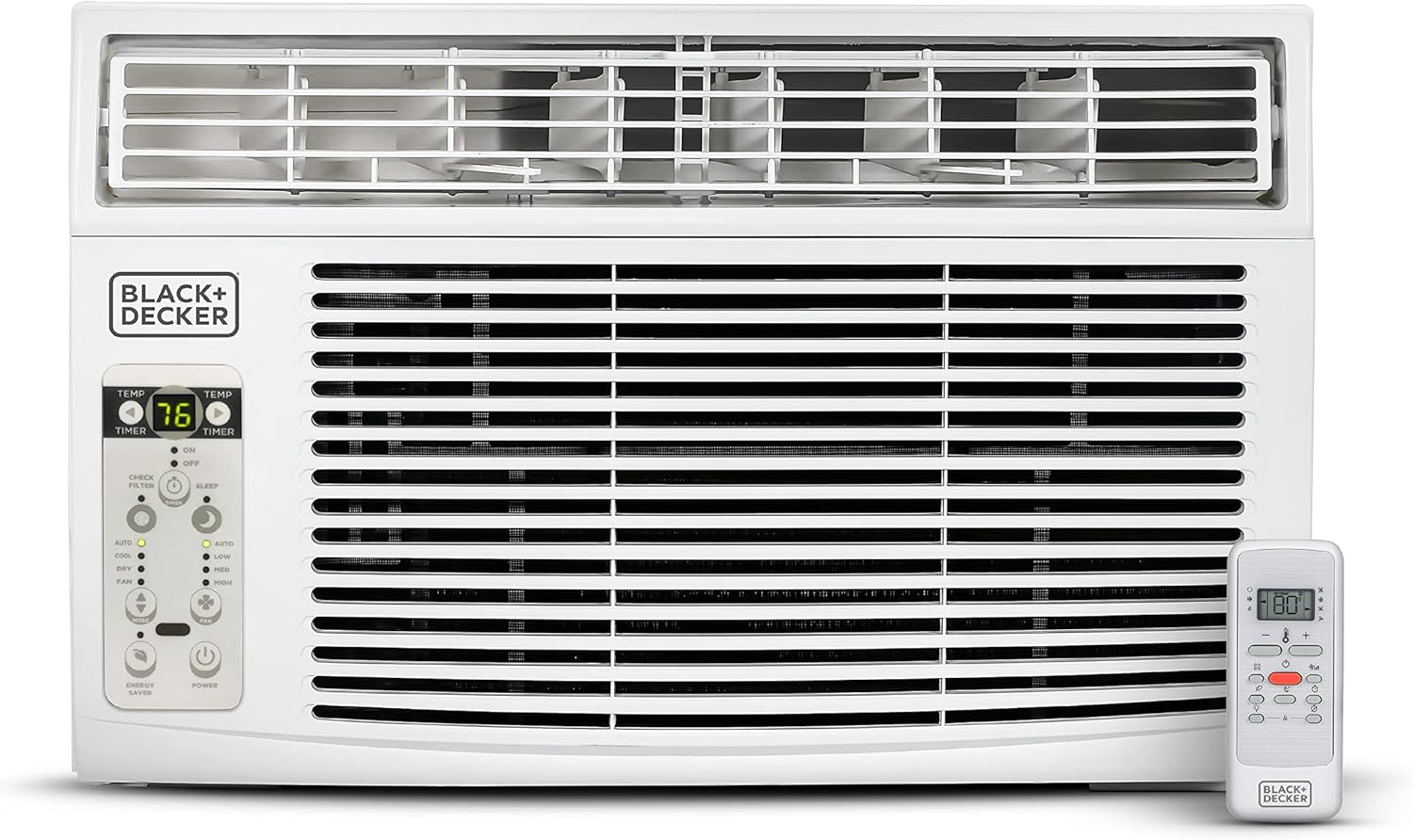





Price: $219.99 - $199.99
(as of Apr 15, 2025 15:57:44 UTC - Details)
Which AC Unit is the Best? A Comprehensive Review
Introduction
When summer hits, the last thing you want is to be stuck in a sweltering home. Air conditioning units can be lifesavers, but with so many options available, it can be hard to determine which AC unit is the best for your needs. In this article, we will explore various air conditioning units, highlighting their features, benefits, and drawbacks. Whether you're looking for a window unit, a portable solution, or a central air system, we’ll help you make an informed decision. By the end, you’ll know exactly which AC unit is the best for you and your home.
Understanding Different Types of AC Units
1. Window AC Units
Window air conditioners are a popular choice for many homeowners. They are typically installed in a window or through a wall and are designed to cool a single room effectively.
Pros and Cons of Window AC Units
One of the biggest advantages of window units is their affordability and ease of installation. You can simply plug them into an outlet and enjoy cool air within minutes. However, they can block your window view and may not be suitable for larger spaces.
2. Portable AC Units
If you need flexibility, portable air conditioners are worth considering. These units can be moved from room to room and do not require permanent installation.
Why Choose a Portable AC Unit?
Portable AC units are ideal for renters or those who want to cool multiple rooms without the hassle of installation. They usually come with wheels for easy mobility and can be set up in minutes. However, they may not be as energy-efficient as other types of AC units.
3. Ductless Mini-Split Systems
Ductless mini-split systems are becoming increasingly popular due to their efficiency and versatility. These units consist of an outdoor compressor and one or more indoor air handlers.
Benefits of Ductless Mini-Split Systems
One major benefit is that they provide cooling without the need for ductwork, making them perfect for homes without existing ducts. They also allow for zoning, meaning you can set different temperatures in different rooms. However, installation can be more complex and costly compared to window or portable units.
4. Central Air Conditioning
For those looking to cool their entire home, central air conditioning systems are the way to go. They use a network of ducts to distribute cool air throughout the house.
Is Central Air Conditioning Right for You?
Central air systems are efficient for cooling larger spaces and can improve indoor air quality. They are generally quieter than window or portable units. However, installation can be expensive, and homes without pre-existing ducts may need extensive renovations.
Key Features to Consider When Choosing an AC Unit
5. Energy Efficiency
When looking for the best air conditioner, energy efficiency should be a top priority. AC units are rated using the Energy Efficiency Ratio (EER) or Seasonal Energy Efficiency Ratio (SEER).
Why Energy Efficiency Matters
Choosing an energy-efficient model can save you money on your energy bills in the long run. Look for units with high EER or SEER ratings to ensure you’re getting the best performance for your investment.
6. Noise Levels
Nobody wants to listen to a loud air conditioner while trying to relax at home. Noise levels can vary significantly between different AC units.
Finding a Quiet AC Unit
Check the decibel rating of the unit before purchasing. Units that operate below 60 decibels are generally considered quiet and won’t disrupt your daily activities.
7. Maintenance Requirements
Every air conditioning unit will require some level of maintenance. Understanding what is involved can help you choose the right unit for your lifestyle.
How to Simplify Maintenance
Some models have washable filters and self-cleaning features, making maintenance easier. Regularly cleaning the filters and coils will ensure your unit runs efficiently.
8. Installation Process
The installation process can vary dramatically between different types of AC units. Knowing what to expect can save you time and hassle.
Easy Installation Options
Window and portable units are typically easy to install and don’t require professional help. Ductless and central air systems may require a technician, so factor in these costs when making your decision.
Conclusion
In summary, the best AC unit for you depends on your unique needs and circumstances. Window units are great for small spaces, while portable units offer flexibility. Ductless systems provide efficiency without ductwork, and central air conditioning is ideal for larger homes. Always consider energy efficiency, noise levels, maintenance requirements, and installation processes when making your decision. Armed with this information, you’re now ready to choose the best AC unit for your home. Enjoy a cool and comfortable summer!
Keeps Rooms Cool: 6,000 BTU window air conditioner unit will keep your home cool and comfortable. This window unit AC runs at four levels: auto, low, medium and high to ensure optimal indoor relief.
For Bedrooms & Small Living Spaces: Our window ac units offer consistent and effective cooling for rooms up to 250 square feet. Perfect for bedrooms, offices, playrooms, living rooms and apartments.
Full Function Remote Control: Control every setting and function on the easy-to-use remote control. Window unit air conditioner features sleep mode, energy saver, 24-hour timer and more.
Easy Installation: Accordion style window air conditioner side panels offer easy installation to ensure the AC unit fits through standard double hung windows from 23" to 36" wide and as low as 14" H.
Energy Efficient: This window AC uses R32 refrigerant, which has zero impact on the ozone layer and improves energy efficiency by up to 10% compared with R-410A refrigerant air conditioners.
